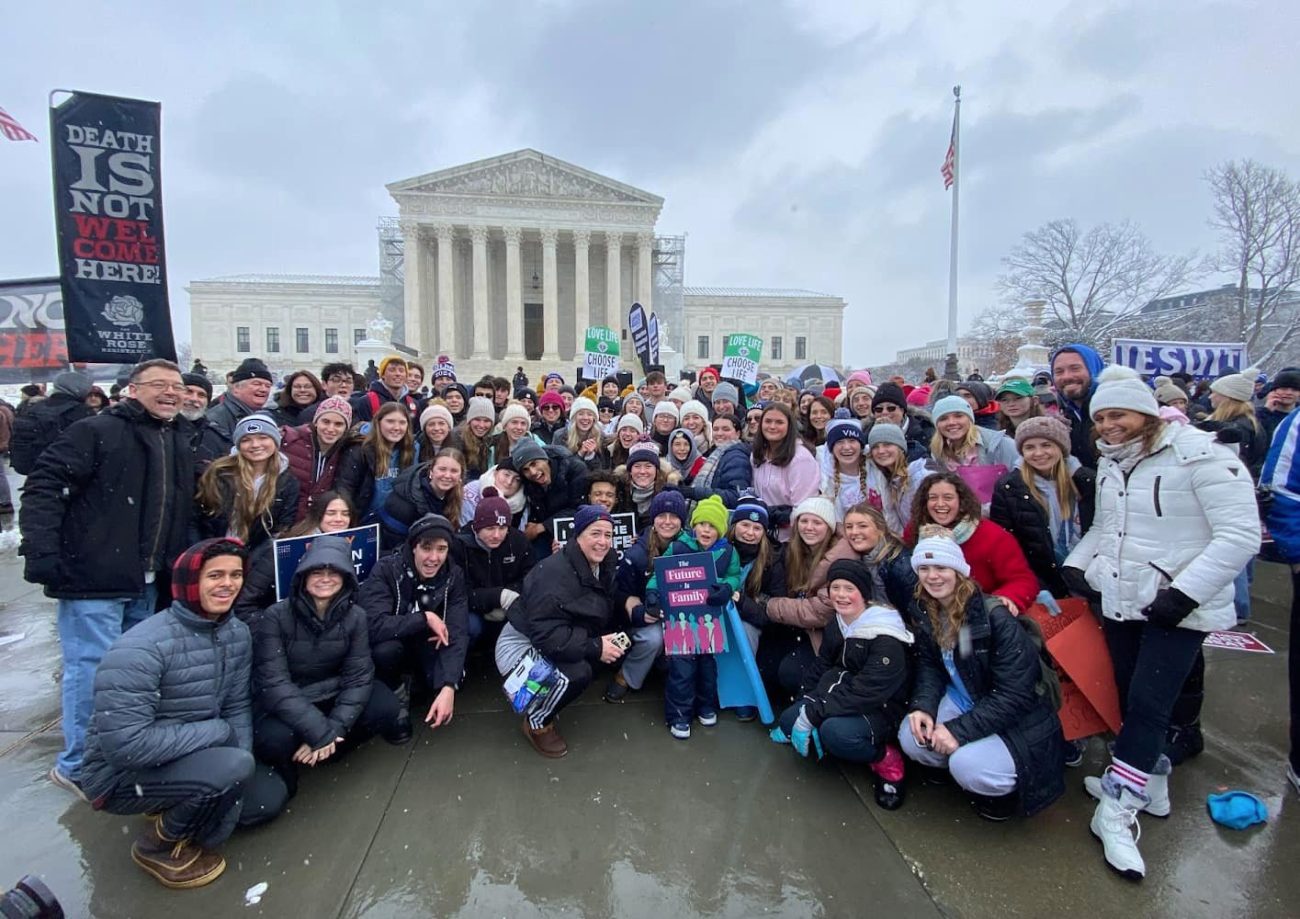Why do people participate each year in the March for Life in our nation’s capital?
“This really flows from the life of the Church … you see the whole life of the Church spread out along those streets leading up to the Capitol,” said Daniel Drain, director of the archdiocesan Office for Life and Family explaining why tens of thousands of Catholics nationwide — including thousands from the Philadelphia region — bear witness to their faith and the sanctity of human life at the annual March for Life, this year on Friday, Jan. 24 at the National Mall in Washington, D.C.
Drain is organizing one of the main groups from Philadelphia, while others are coming from Catholic schools or non-profit organizations. Many organizers are finding common ground in their goal to continue building a culture of life in the United States.
“For me and with my students, we’re a bit more focused on really helping people to see that life is a beautiful gift, and that every human life has dignity and value,” said Rose Tomassi, a teacher at Martin Saints Classical High School in East Norriton, Montgomery County.
She plays a big part in organizing her students’ day trip to Washington for the March and related events.
“The March for Life is really just an extension of that, and trying to share with others in our culture that life in the womb, or the life of the elderly, is not something that’s a burden. It’s not something to be afraid of, but it’s something to be cherished and protected.”
“The deep encounter that we’re going to have with Christ through the Sisters of Life and Knights of Columbus, Life Fest (a youth event on Jan. 23 in Fairfax, Va.), adoration, Mass, powerful testimonies, all coupled with the March (is) going to stir fire, the Holy Spirit,” said Pete DeMaio, the co-founder of Mission Love and Life.
He and his wife Tricia will speak at march-related events that weekend while also leading a team of pilgrims from the Philadelphia area.
“They’re going to come back prepared to actually be disciples and to witness. To me, that’s the real vision,” he said.
The March for Life, begun in 1974, aimed to overturn the Supreme Court’s Roe v. Wade decision that legalized abortion in the United States the prior year.
But Drain said that in recent years, the Catholic community has become more deeply focused on expanding the pro-life vision beyond political goals and toward direct action that serves, as Pope Francis says, “those who are on the margins.”
“When I work and have worked with local pro-life leaders, and pro-life volunteers and people in the pews, almost everybody has been viscerally attentive to the fact that you can’t be pro-life if you just go to the March for Life,” Drain said.
“Pro-life work (is) also donating diapers to the crisis pregnancy center, volunteering (by) walking with moms in need, getting to know the families in crisis in your parish. That’s the real sort of ‘meat on the bones’ of pro-life work.”
Such action is spawned from the March for Life’s testimony to the importance of protecting human life at all stages, from conception to natural death and everything in between.
“There’s a massive need to restore our culture and to educate children and young adults, and everyone, to see the dignity and value of each person,” added Tomassi. “We can so some things at a political level, but witnessing to the dignity of life is something that mostly has to happen in our own lives.”
In the case of Pete and Tricia DeMaio, it comes from their own post-abortive story which they will share publicly during the weekend of the March.
“We’ve been together since we were 15 years old. We have a powerful story of God, just love, forgiveness, mercy, healing, grace, right in our own lives and relationship, and now here we are, married, seven beautiful children,” said Pete.
“If we can bring people into that relationship with Christ, where we truly love him, and we show that love of God in our love of our neighbor, then at that point, there’s going to be no question that we’re going to have a dignity and respect for other human beings … that’s going to start at conception and carry on all the way.”
That mission is inspiring thousands of pilgrims from the Philadelphia region down I-95 and all over the Washington subway system to the March for Life and its related events. Drain hopes that direct action and service return to the community here at home.
“If you want to be pro-life, yes, serve at the crisis pregnancy centers, help out at the women’s shelters, all of those things, (and) go to the March as well,” Drain said.
“Christ doesn’t tell us to give to charities in the Gospel. He says clothe the naked, feed the hungry. Those are always particular. It’s not a general thing. Those are particular people that you encounter. And that’s doubly true for the pro-life movement.”
PREVIOUS: El Camino Cafe Serves Relaxed Way for Young Adults to Explore Faith
NEXT: Clergy Assignments Announced for Four Priests



Share this story